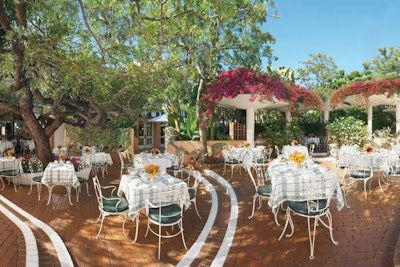
The Beverly Hills Hotel, one of the most iconic properties in Los Angeles, is facing a boycott because of the political beliefs of its owner, the Sultan of Brunei. (He's now under fire for imposing Sharia law, which targets women and gays for harsh punishment, in his nation.) This comes on the heels of previous calls for boycotts elsewhere in the country that have affected events and venues, as in the case of Florida's Stand Your Ground law.
Increasingly, event and meeting professionals are conscious of topical issues and public outcries and are making decisions for their gatherings based on prevailing social, moral, or political beliefs. Indeed, in a BizBash poll, respondents overwhelmingly said they felt it was their professional duty to do so, acknowledging their roles as managers of public perception amid controversial issues in the news that could threaten an event's success.
"I not only admit to making decisions based on these things, I feel that it's one of my primary job functions to take these into consideration on behalf of my client. Personal feelings aside, I think it would be very bad business to support the Beverly Hills Hotel right now. If I have a client that happens to be living under a rock or maybe is based outside the country and not following the same news or social media as I am, it's my responsibility to keep them out of a situation where they may be in the news for being perceived as supporting this issue, [to use it] as an example. In business, perception has always been more important than reality. But in today's world of the Internet, social media, and instant messaging, it's 100 times more important—and it's our job to help our clients, both internal and external, make decisions that will positively affect their public image."
—Joseph Smith, president, event services, StageOne Events
"I think that not enough business decisions are made based on personal beliefs in the corporate world. The event industry is driven by individuals, not corporations and conglomerates. As event specialists, we make these personal decisions every day on behalf of our clients. The phrase 'it's just business' has been used way too many times to destroy, betray, degrade, or cheat a consumer. This happens every day in the event industry. It is our duty to be the advocate for our client, but if more people outside of the event industry didn't overlook things like this, if they showed the corporations through boycott or otherwise that things like this were not O.K. and it is not someone else's problem, business as a whole would be a lot better off."
—Amy Shaw, event planner, Tachi Palace Hotel and Casino
"I do and I have. I had a client of a Jewish not-for-profit who wanted to use a social club for an event venue. Historically the venue has excluded blacks, Jews, and women. When I did the site survey, the site manager and I were going to get on an elevator when two club members got on and she signaled me to wait. She explained that the older club members were very traditional. Needless to say the phrase 'over my dead body' was used when the client asked what I thought."
—Norman Lazarus, Philadephia-based sales and project manager
"We do have to keep current political events in mind and overall public sentiment when selecting a location, venue, vendor, etc. It's our job to advise clients on how to get the best results from an event, and potential backlash or bad PR from doing business in a venue that has a wave of ill sentiment can certainly put the client in a negative light. Clients make a big investment in their events, and all the pieces matter.
In the case of the Beverly Hills Hotel, it is very sad to see such an iconic, beloved property facing the backlash it is. There are many good people who have worked there for many years who we have known over the years, and our thoughts are with them and their families at this uncertain time as people's jobs are probably in jeopardy because of the boycott. That all said, there are some pretty severe issues going on that are hard to ignore. So while we don't want the workers at the hotel to suffer, we also need to be aware consumers."
—Cara Kleinhaut, owner, Caravents
"Every day. I look at the data, I consider my experience and my values, and make the best decision I can."
—David Kaiser, executive coach, Confidence for Women Professionals
"We make all of our decisions as an agency based off of our core values of quality, integrity, respect, and courage."
—Adam Suellentrop, director of production and meeting services, Barkley Kalpak Agency
"I make client decisions based on personal beliefs—I'm an extension of their team. If I don't believe in them as a company, how can I be an effective representative for them?"
—Sarah Cissna, principal, The Side Lobby
Editor's note: Some of these comments were shared by readers on our social media networks. Join our discussions on LinkedIn.



















